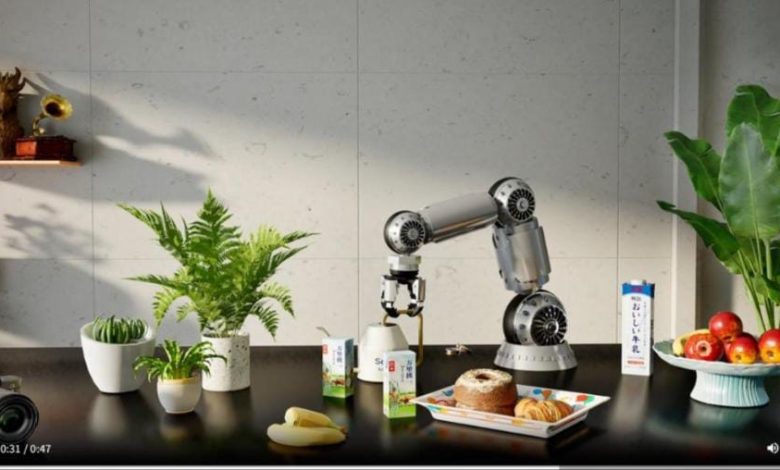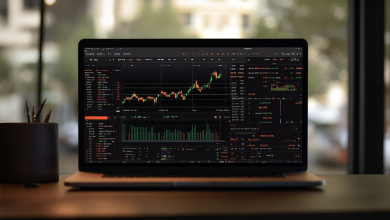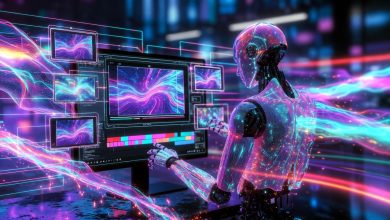
In today’s fast-evolving digital landscape, the demand for high-quality, scalable 3D models has never been greater. Whether you’re a game developer, robotics engineer, or virtual reality creator, you understand the challenges of producing accurate, detailed, and animation-ready 3D assets.
Released in October 2025, Seed3D 1.0 is a groundbreaking generative model that combines the power of Diffusion Transformers with explicit physics simulation, enabling you to create high-fidelity 3D models from a single image. This technology not only simplifies workflows but also opens up exciting new possibilities for industries ranging from gaming to robotics.
Let’s dive into what makes Seed3D 1.0 a game-changer and how it’s shaping the future of 3D generation.
The Challenge: Why Traditional 3D Methods Fall Short
For creators like you, the process of generating 3D models often comes with significant hurdles:
- Time-Intensive Workflows: Manual rigging, texturing, and animation are tedious and prone to errors.
- Limited Scalability: Adapting model quality to different use cases often requires starting from scratch.
- Inconsistent Output: Many solutions struggle to maintain fidelity when generating complex geometries or textures.
- Integration Barriers: Compatibility with simulation engines and real-time applications remains a challenge.
These pain points have long limited the potential of 3D modeling, especially in high-demand fields like robotics and immersive simulations.
Seed3D 1.0: A New Era of 3D Generation
Seed3D 1.0 was designed to address these challenges head-on. By leveraging cutting-edge AI and physics-based modeling, it delivers a suite of advanced features that set it apart from traditional methods.
1. Diffusion Transformer Technology
At the heart of Seed3D is the Diffusion Transformer, a state-of-the-art architecture that excels in generating both geometry and texture. This approach enables Seed3D to produce highly detailed models that remain faithful to their reference images, even for complex objects.
2. Physics Simulation Integration
Unlike other generative models, Seed3D incorporates explicit physics simulation, ensuring that generated models are not only visually accurate but also physically plausible. This makes it ideal for applications in robotics and virtual environments.
3. End-to-End Workflow
Seed3D simplifies the entire 3D generation process. From a single input image, you can generate simulation-grade 3D assets that are ready for animation, rendering, or integration into simulation engines like Isaac Sim.
4. Scalability and Flexibility
With Seed3D, you can adjust model quality dynamically, scaling from quick previews to ultra-high-resolution outputs with over 100,000 tokens. This flexibility allows you to tailor outputs to your specific needs without retraining the model.
How Seed3D Stands Out: A Competitive Comparison
To understand Seed3D’s impact, let’s compare its capabilities to traditional methods and other AI-driven solutions:
| Feature | Seed3D 1.0 | Traditional Methods | Other AI Solutions |
| Geometry Accuracy | High-fidelity reproduction with fine details | Limited edge sampling; lacks precision | Requires larger models for similar accuracy |
| Texture Consistency | Maintains fidelity even for complex textures | Prone to inconsistencies and artifacts | Moderate consistency; struggles with fine details |
| Physics Simulation | Integrated for realistic outputs | Absent; requires manual adjustments | Rarely integrated; limited use cases |
| Scalability | Dynamic quality adjustment during inference | Fixed output quality; inflexible | Limited scalability options |
| Dataset Diversity | Trained on 48,000+ high-quality 3D models | Smaller datasets; limited object categories | Moderate diversity; lacks specialization |
Seed3D’s ability to combine precision, scalability, and physics-based realism makes it a standout solution for professionals seeking cutting-edge 3D tools.
Applications: Where Seed3D Shines
Seed3D is more than just a tool—it’s a versatile platform that empowers creators across multiple industries.
1. Robotics and AI Training
Seed3D’s ability to generate physics-simulated 3D scenes makes it an invaluable resource for training robots and AI systems. These models can be seamlessly integrated into simulation platforms like Isaac Sim, enabling interactive learning and real-world task performance.
2. Game Development
With its automated animation capabilities, Seed3D eliminates the need for manual rigging, allowing game developers to focus on storytelling and design. The result? Faster workflows and richer gaming experiences.
3. Virtual Reality and AR
Seed3D’s high-resolution outputs and texture fidelity make it ideal for creating immersive VR and AR environments. Whether you’re designing virtual worlds or augmented reality apps, Seed3D ensures your assets look and feel real.
4. Product Design and Prototyping
From intricate product details to realistic textures, Seed3D helps designers bring their concepts to life with unparalleled accuracy. Its scalability also allows for rapid iteration and refinement.
What’s Next for Seed3D?
The Seed team is already looking to the future. Plans are underway to integrate Multimodal Large Language Models (MLLM) into Seed3D, further enhancing its ability to generate accurate and versatile 3D models. This development aims to improve generalization capabilities, making Seed3D even more robust for large-scale applications in world simulators and beyond.
Additionally, the team is exploring partnerships with robotics and gaming companies to expand Seed3D’s impact across industries.




